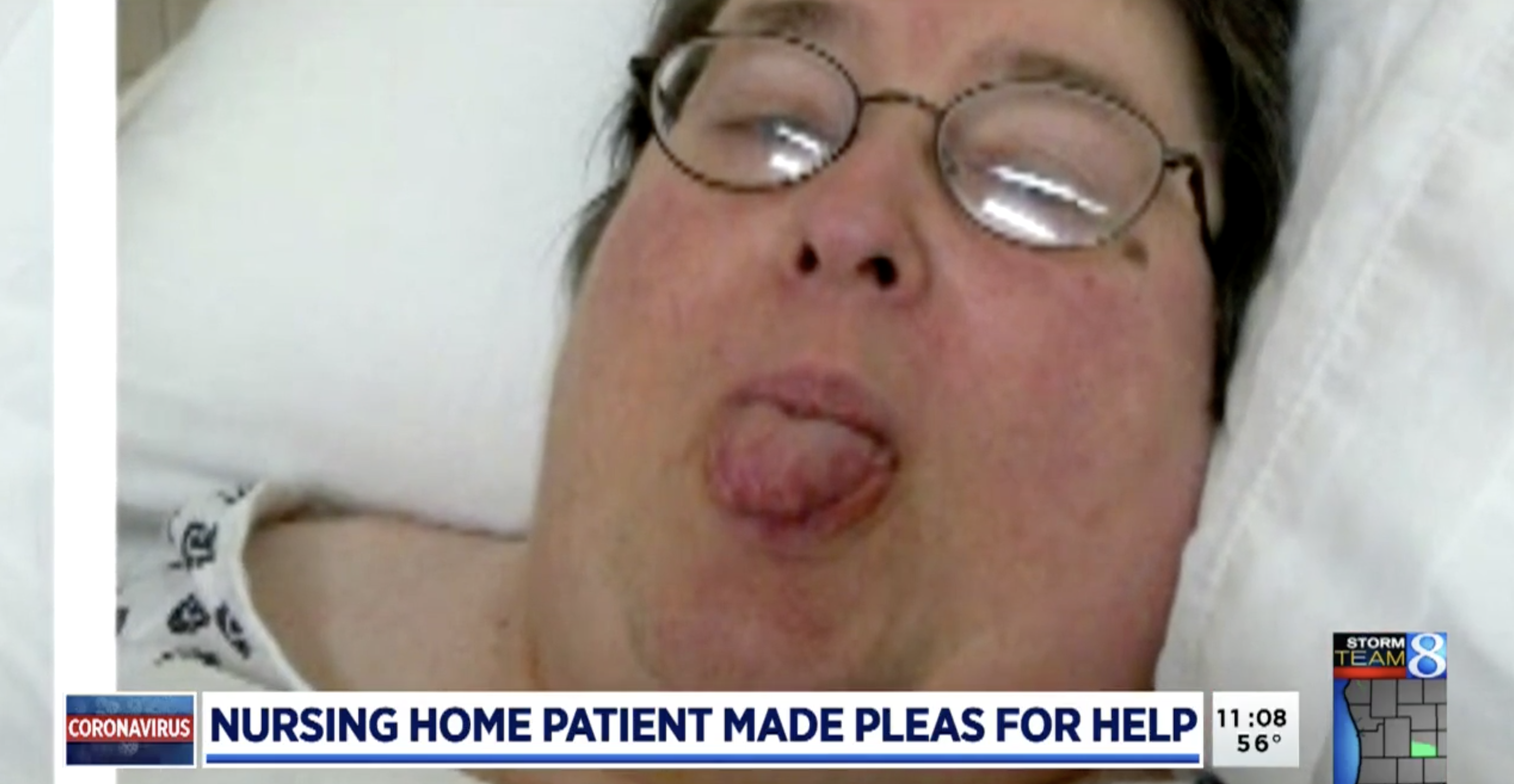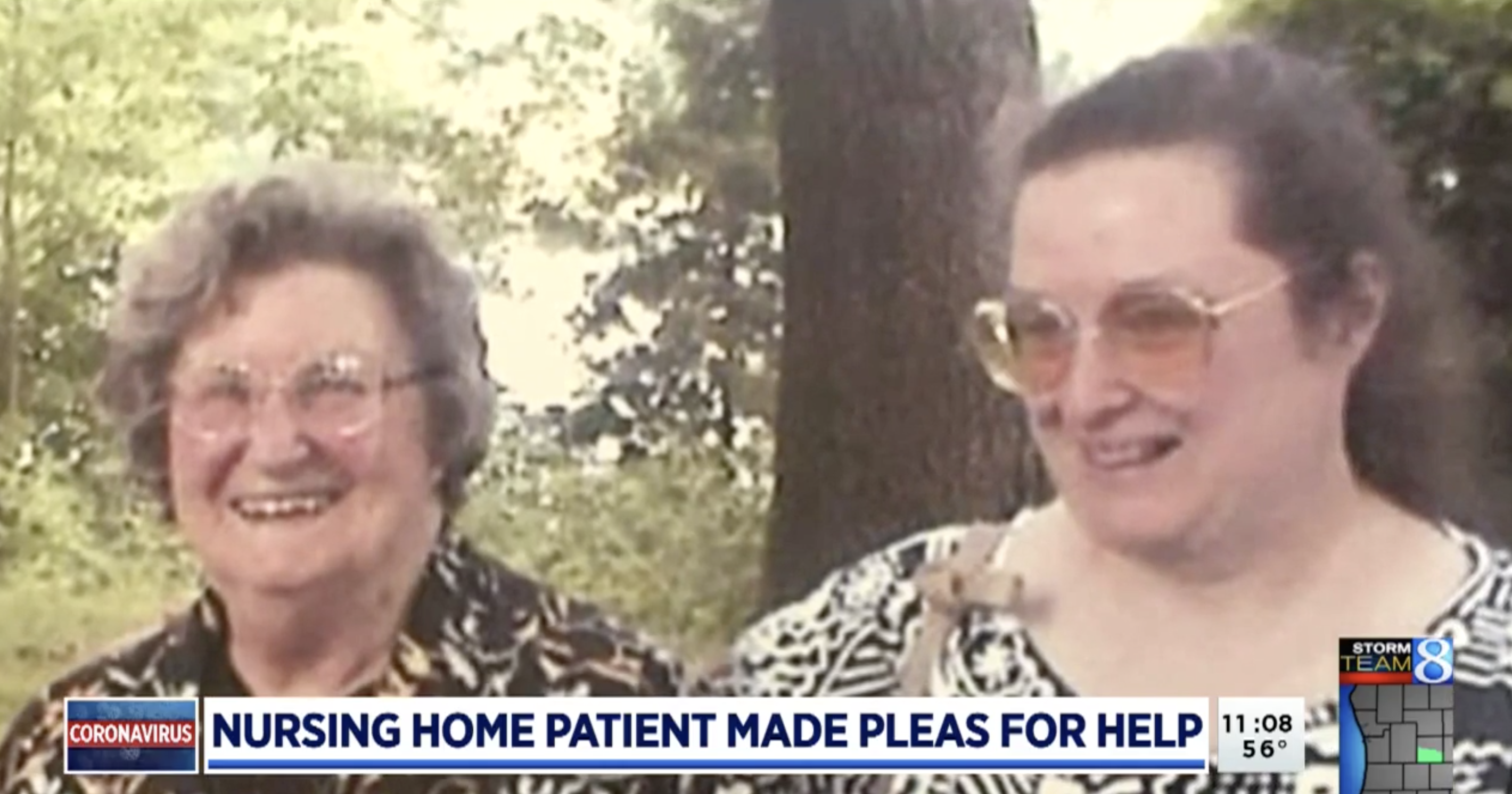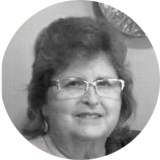
The journalists at BuzzFeed News are proud to bring you trustworthy and relevant reporting about the coronavirus. To help keep this news free, become a member and sign up for our newsletter, Outbreak Today.
LouAnn Dagen loved Amazon's Echo Show device. The 66-year-old had spent more than 10 years in a Michigan nursing home after a stroke, and the device had revived her interest in music and games, her sister Penny Dagen wrote in an online product review in 2018.
"My sister is very intelligent and because she is bedridden she lost interest in a lot of things she loved to do," Penny wrote in the review. "This has opened up new doors for her. She just loves it. She can play most of the music she loves, play games, learns from questions she asks."
Penny said the device had been a "lifesaver" for her sister.
"It is like a good friend to her," Penny wrote.
In the days leading up to her death on Saturday from COVID-19, LouAnn turned to Alexa for help.
She made around 40 recordings on the device three or four days before her death, some of which Penny shared with WOOD-TV, saying that her sister would have wanted people to be aware of the suffering wrought by the coronavirus.
"Alexa, help me," LouAnn said in one recording.
"I am in pain. I have to find a way to relieve it,” she told Alexa.
"Can you help me cope with pain?”
“Oh, Alexa, I’m going to hurt.”
She asked Alexa to help her contact law enforcement.
"How do I get to the police," she asked Alexa. The device gave her directions to the nearest police station.
LouAnn died on Saturday shortly after being hospitalized in Grand Rapids following a drop in her oxygen level and blood pressure, Penny told WOOD-TV.
She was one of the 31 residents and five staff members who tested positive for COVID-19 at the Metron of Cedar Springs nursing home last week.
After her death, her sister discovered her Alexa recordings in her room at the nursing home.
Penny told WOOD-TV that her sister told her that her pain was everywhere despite the nursing home giving her a pain reliever.
“I just kept telling her there wasn’t anything I could do,” Penny said.
“I’m sorry I couldn’t help you more. I’d take your pain away,” she said, crying.
Penny said her sister was struggling with shortness of breath last week due to COVID-19, but Metron told her that she did not need to be hospitalized because she did not have an elevated temperature.
In a statement to BuzzFeed News, Paul Pruitt, Metron's operations director, said that LouAnn Dagen had never required hospitalization during the 10 years she spent in the same room, "prior to the complications that rapidly developed as a result of COVID-19."
Citing privacy reasons, Pruitt said they could not share information about her physical or mental health.
He said LouAnn was getting "excellent care" and that their team had followed "both her advanced directives and clinical practice guidelines to manage her pain and symptoms."
"Once those symptoms progressed rapidly, and at the advice of her medical team, she was immediately sent to the hospital," the statement said.

Penny said the hospital put her sister "on a respirator" and asked Penny about giving her CPR if her heart stopped.
"I said, ‘No, she didn’t want that,'" Penny said. "And then her heart stopped and that was it. A half-hour after, they called.”
LouAnn, who also had diabetes and hypertension, had resided at the nursing home after having a stroke a decade earlier.
In her online review of the Echo Show device, Penny said that as she was "handicapped at home" and her sister was bedridden in the nursing home, the device helped them see each other and communicate with each other.
"I also get to be there visually for her care conference," Penny wrote in the review.

Metron's Pruitt said that Alexa was LouAnn's "primary communication tool with her sister who was unable to get to our facility."
"She could call her sister through the device, and they communicated often. It was a very positive part of her life, which we supported fully," Pruitt said.
In her review, Penny wrote, "It is a lifesaver between my sister and I."





